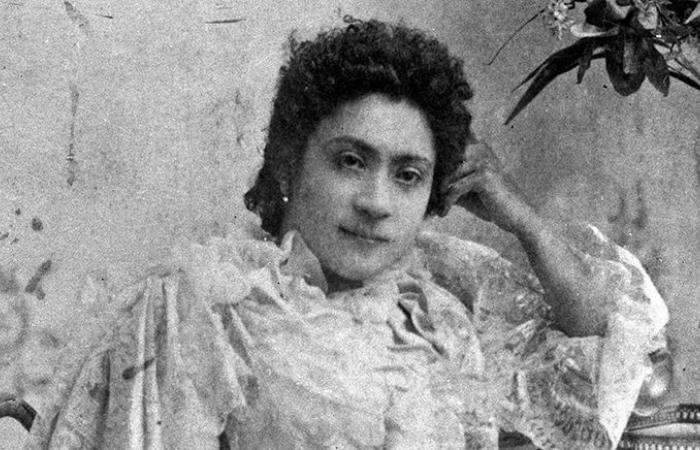
The first female doctor in South America, graduated from the University of Chile in 1887, promoted school feeding and vaccination plans that laid the foundations of Chilean public health. In the week of her birth, academics and doctors from her university review her history and legacy.
On January 3, 1887, Eloísa Díaz Insunza went down in history as the first female surgeon in Chile and South America. Her degree, awarded by the University of Chile, was framed within the feminist struggles to achieve the inclusion of women in different aspects of society, very relevant for the time, since, for example, only 10 years before in Chile, Decree No. 547 had been promulgated, which allowed women’s access to university studies. In this way, Eloísa Díaz would be part of the first generation of university women in the country.
It should be noted that the also known as “Amunateguí Decree”in reference to the then Minister of Public Education, Miguel Luis Amunátegui, It was possible thanks to the hard work and struggle of teachers like Antonia Tarragó and Isabel de Brown.. An aspect that has been little recognized, as stated by the historian of the Andrés Bello Central Archive, Ariadna Biotti, who seeks to recover in her research the memory of different female figures in Chilean history, including Eloísa Díaz.
In fact, Biotti draws a parallel between the first doctor and Isabel de Brown, the latter being the director of the Isabel Le Brun de Pinochet High School, where Díaz completed her primary studies. “There is continuity between these women, to the extent that they are effectively opening spaces for each other,” Biotti points out.
Already qualified as a doctor, Dr. Eloisa Díaz would demonstrate her value by early evidencing the absence of studies on women. Her first efforts to address these shortcomings were reflected in her thesis “Brief observations on the onset of puberty in Chilean women”available in the Academic Repository of the University of Chile.
“Reviewing the national medical literature and the numerous works that have already been presented in test reports or in different competitions, I have found a regrettable gap in everything related to the onset of puberty in Chilean women.”wrote in 1886 Dr. Eloisa Diaz. Factor that the academic from the School of Public Health of the University of Chile (ESP), Dr. Pamela Eguiguren, recognizes as a problem that persists to this day, showing the progress of Dr. Díaz within the period. “There has always been an androcentric view in medicine, assuming that what has been studied in men also applies to women.”so at that time she ventured there,” highlights Dr. Eguiguren.
Fanny Berlagosky, an academic from the Collective Health and Social Medicine program at the University of Chile, also agrees, describing it as a great paradigm shift within medicine. A medicine in an exclusively male context within the period. “The male medical hegemony is broken and I think that is her great contribution. Although there was training for midwives, there were no female doctors. “So it was a world that, from the profession, was understood as a profession of power”addresses the ESP academic.
A pioneer of school public health
At the end of the 19th century and the beginning of the 20th century, Chile still had delays in health issues. As Dr. Pamela Eguiguren contextualizes, at that time the first hospitals were managed by churches and mutual aid societies were just created, the future basis of the contemporary public health system. “There was still no organized response to talk about what we understand today as a health system,” clarifies the ESP doctor.
Given this scenario, Dr. Eloísa Díaz was one of the first professionals to focus her work on a social perspective. This is what historian Ariadna Biotti highlights. “In 1898 Díaz took over as Medical Inspector of Public Schools at the national level –belonging to the Ministry of Public Education–, a position where He was in charge of studying the health conditions that children had to face when they went to school..
“She created the first school canteens, where food is delivered. She addresses vaccination, the need for hygiene, ventilation, and for classrooms to be lit for class. In fact, she was concerned about the material conditions of the children, so she left a mark that we can still recognize today,” says Biotti.
Dr. Fanny Berlagosky also agrees, highlighting the capacity of Dr. Díaz for highlighting health as a transversal and class issue, in a period marked by high poverty rates. “She ensured that the school was the most virtuous place in people’s lives, where there was welcome and training. It meant being able to integrate them in a much clearer way into their role and the value of each one in the places where they lived.”explains Dr. Berlagosky.
If you want to know more about the history and legacy of Dr. Eloísa Díaz, we invite you to check out chapter 144 of the Universidad de Chile Podcast. Now available on Spotify, Tantaku, YouTube and Apple Podcast.

